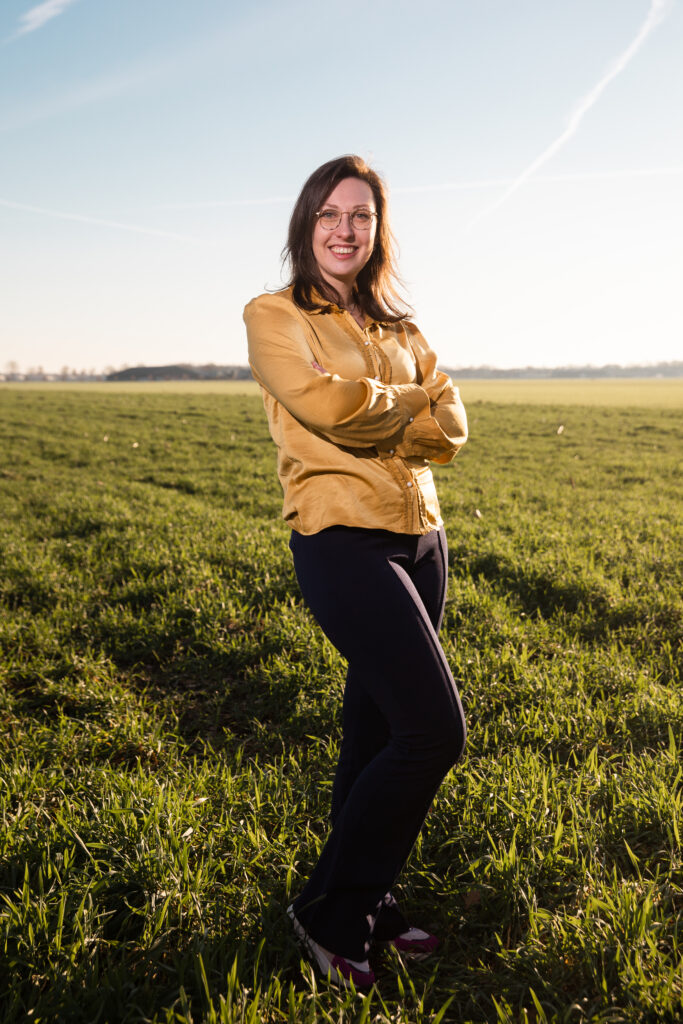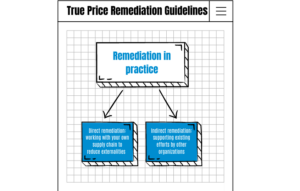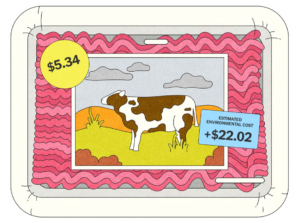In a recent interview with Pauline Rosenberg, sustainability specialist at Vermaat, we delved into their most recent True Price project, building off a pilot initiated in 2022. Pauline’s role within Vermaat, one of the largest catering and hospitality businesses in the Netherlands, has been pivotal, transitioning from the Purchasing Department to spearheading sustainability efforts. In this interview, she elaborates on the challenges and triumphs of their sustainability journey. Through initiatives like True Pricing, Vermaat has not only gained valuable insights into the true costs of their products but has also initiated important dialogues with suppliers, paving the way for a more sustainable future in the global food system.
Can you tell me a little bit about Vermaat and your role in the organization?
Vermaat is a catering and hospitality company, in the Netherlands, France, and Germany; with around 500 restaurants, and we’re growing every day. We’re active in different sectors, including leisure, corporate, hospitals, retail, and digital catering.
In the leisure market, we have locations at travel spots like Schiphol Airport and leisure restaurants like the Rijksrestaurant in the Rijksmuseum. We also handle hospitality at places like the zoo Artis. Our corporate sector is our main focus, with about 250 restaurants across the Netherlands, catering to various high-tech and corporate companies.

We also serve hospital locations, providing catering not only for visitors but also for the staff. We have food service and retail locations like La Place, Stach and a daughter company called Join Program, which focuses on digital catering. They deliver food to clients based on orders made through an app, sourcing from a large production kitchen with a big focus on reducing food waste.
Additionally, we handle event catering under the Vermaat brand. As for me, I’m a sustainability specialist at Vermaat. I’ve been with the company for almost eight years, starting in the Purchasing Department as a data analyst and moving into sustainability. I work with environmental data, focusing on plant-based eating, sustainable sourcing, and food waste management. Our sustainability policy, called the Food Vision, started in 2018, and in 2023 we just our second Food Vision for the next four years until 2027.
What would you say are the main issues you’re focusing on, whether from a sustainability or social perspective?
From my point of view, the main issues are: Firstly, shifting to a more sustainable food system. We know we need to eat more plant-based and certified foods, but it’s challenging to get guests to choose vegan or vegetarian options. As a hospitality company, we need to cater to everyone’s preferences and maintain our business, which sometimes conflicts with our sustainability goals.
Secondly, the cost and availability of certified products can be problematic. For example, we might want to switch to organic chicken, but it’s often too expensive or not available in the market.
Lastly, food waste is a significant issue. We are addressing it by using Orbisk, an artificial intelligence system, to measure food waste at our locations. By analyzing this data, we can effectively reduce waste. We’re also partnering with companies like Too Good To Go and Instock to further minimize food waste. Unlike plant-based food, everyone agrees on the importance of reducing food waste.
How did the implementation of true pricing affect the company’s overall sustainability strategy?
While true pricing isn’t our main priority right now, as our biggest impact comes from reducing food waste, increasing plant-based consumption, and addressing climate change; true pricing has helped in providing valuable insights. For example, in our recent project in collaboration with True Price, we discovered high social impacts related to tuna linked to child labour risks in the Maldives, which we weren’t aware of before.
Interestingly, the true price gap between a vegetarian kroket, with eggwhites as the main ingredient, and a beef kroket wasn’t as large as we thought. This led us to explore more sustainable options like a mushroom croquette. Similarly, we found that a vegetarian sandwich using olive oil had a high environmental cost, so we switched to rapeseed oil, which is more sustainable.
True pricing has also initiated important conversations with our suppliers. For instance, when we presented our findings on tuna from Ecuador to a major supplier, it led to an interesting conversation about measuring social and environmental costs, and how we can work together to lower these impacts. This could have an impact on tuna supply chains globally.
What are some of the challenges and opportunities you see arising from true pricing at Vermaat?
We’re still in the midst of this process. We recently obtained the data and are currently analyzing it. We’re now working on a rollout plan with True Price, aiming for a major launch with 50 clients in September. We hope to understand the impact on our guests and the funds raised from this initiative.
There are significant challenges, especially when discussing terms with suppliers like our tuna provider. It’s a different approach from standard financial contracts. We also calculated the True Price of non-certified coffee and found a gap. However, certified coffee is always more expensive. Ideally, I’d like every coffee brand we use to be certified, but the cost can be prohibitive.
It can be a challenge to illustrate to our purchasement department that investing in fair compensation for farmers now will reduce externalities (the True Price gap) over time. The purchasing department also has to meet short-term one-year targets. While we all recognize that sustainable practices will benefit us in the long run, transitioning from a short-term to a long-term perspective requires careful consideration, communication, and a complete shift of current budget strategies. Highlighting the significant impact of changes over a decade is an important part of this process.
How do you communicate your ambitions externally?
We conducted a pilot about a year and a half ago with three products (milk, eggs and croissants) across 13 locations. Customers could choose whether to pay the true price or not, and about 10% opted to pay it. This was during a time of inflation due to COVID-19, which may have affected the results.
Initially, we focused on three animal-based products. Now, we’re including plant-based products, such as oat milk, to highlight the differences in true prices between animal-based and plant-based options. Our goal is to influence customer choices and encourage more plant-based consumption through transparent pricing.
One final question: What are the next steps that Vermaat is planning on taking to upkeep its sustainability mission?
We will have a large kickoff in September with 50 locations, possibly more, depending on client interest. This is our main focus for now, and it’s a significant undertaking for the coming months. While it’s my dream to calculate the true price for our entire assortment, it’s not feasible at the moment due to costs. However, we plan to expand our true price calculations to more products, and more restaurants, each year.
It’s always a big realization when you pick a product and see that so many ingredients and countries of origin are involved. It entails much more than anticipated.
Absolutely. That’s why I’m glad we’ve chosen to look at complete recipes this time around, as it aligns better with our operations than focusing on individual ingredients. Evaluating a full sandwich, for instance, provides more comprehensive insights.
We extend our heartfelt thanks to Pauline Rosenberg for sharing her valuable insights and experiences with us.
Click here for more information about the 2021 Vermaat project – an updated site on the 2024 project will be launched soon


